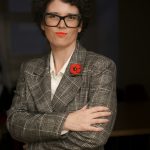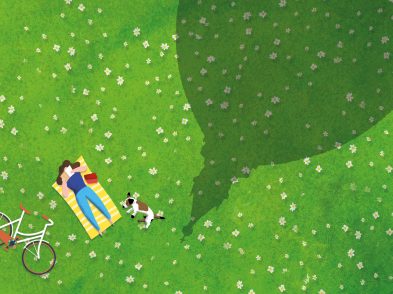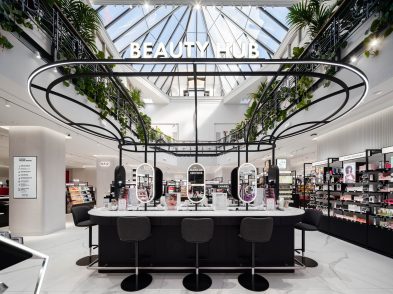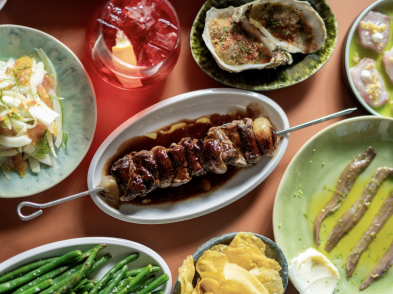Nina Peci is a woman of firsts: a founder of Arcigay Lesbica, one of the first lesbians to be interviewed as coming out on Italian television and the first Jew to join Florence’s Misericordia. On walking into our editorial offices, she pulls a cluster of magazines out of her backpack. Quir was the publication that Peci founded in April 1993, a bilingual monthly focusing on gay and lesbian life and culture. Here, in her own words, she explains the birth of the magazine and Florence’s gay scene in the Nineties and now.
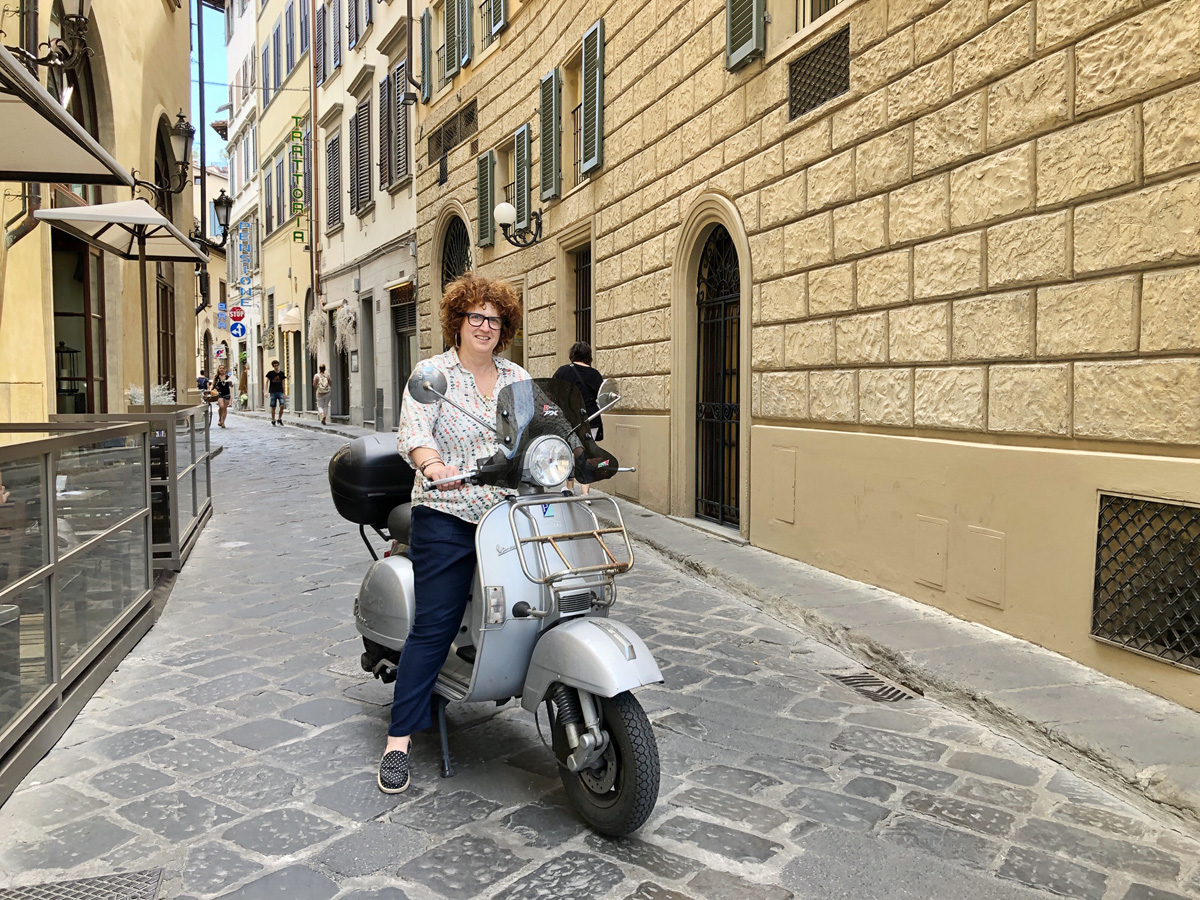
“It was the height of the Mac. I got my first Macintosh, a box-shaped MAC IIci, in 1991 from the States. As I was going through customs, I was thinking about all those possibilities of desktop publishing. I was part of Arcigay and we were having growing pains because a good part of us were concentrating on AIDS—AIDS was the big thing back then. You could do AIDS prevention, but you couldn’t mention the condom, which was useless, so we were very militant. There were a lot of young lesbians who’d just joined the movement and we had transgender people. I thought, well, we’re all queer. Let’s put all our thoughts on paper. Let’s talk about all the issues and we can try to get along that way. That’s why I started the magazine. I also wanted to export Italian gay culture abroad, which is why I insisted on it also being in English. Of course, that was criticized by some of the more major left wing. They were very against my doing it in English. I’d put a draft of the first issue up at the Arcigay and said, “This is it!” Somebody anonymously stuck on this nasty note criticizing the fact it also was in English and also my Italian spelling in the drafts. They basically went off on one about foreigners speaking Italian—they were really cruel. I saved the note and thought, f*ck you, I don’t care.”
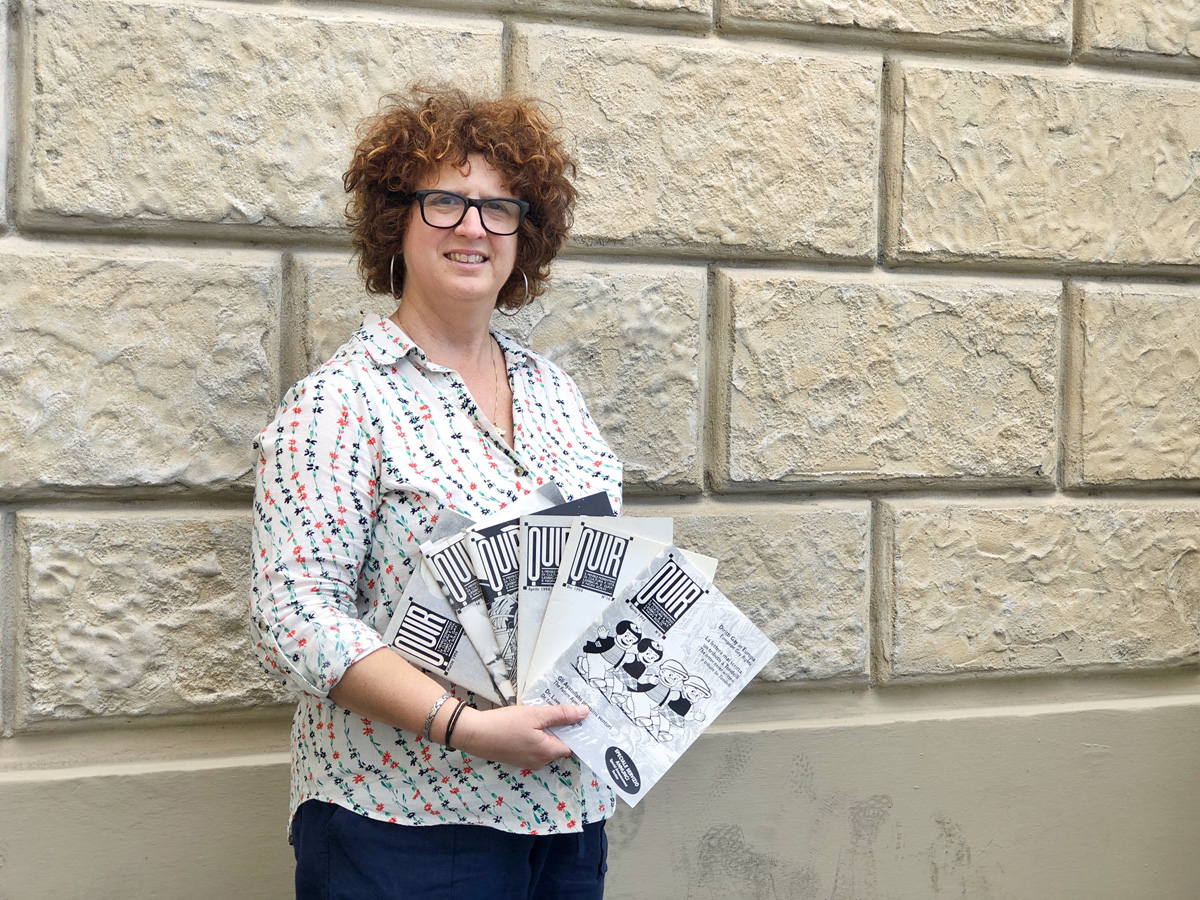
“There were three of us working on the magazine. We distributed the magazine ourselves, handing it out for free in bars, asking for donations here and there. We had a few advertisers, basically a few friends, just to cover the printing costs. Once, I was on vacation in Croatia and had clambered down to this beach in the middle of nowhere. There were these two gay guys, who were reading Quir. It blew my mind. I had tears in my eyes, it was an incredible feeling.”
“I closed the magazine down in its glory because it was at the point where it was to become professional, and you’d have to get sponsors and advertisers, but then it would have lost its underground feel and spirit. Then there was the politics. Arcigay and Azione Gay were getting mixed up in things like political issues that had nothing to do with LGBTQ+ rights.”
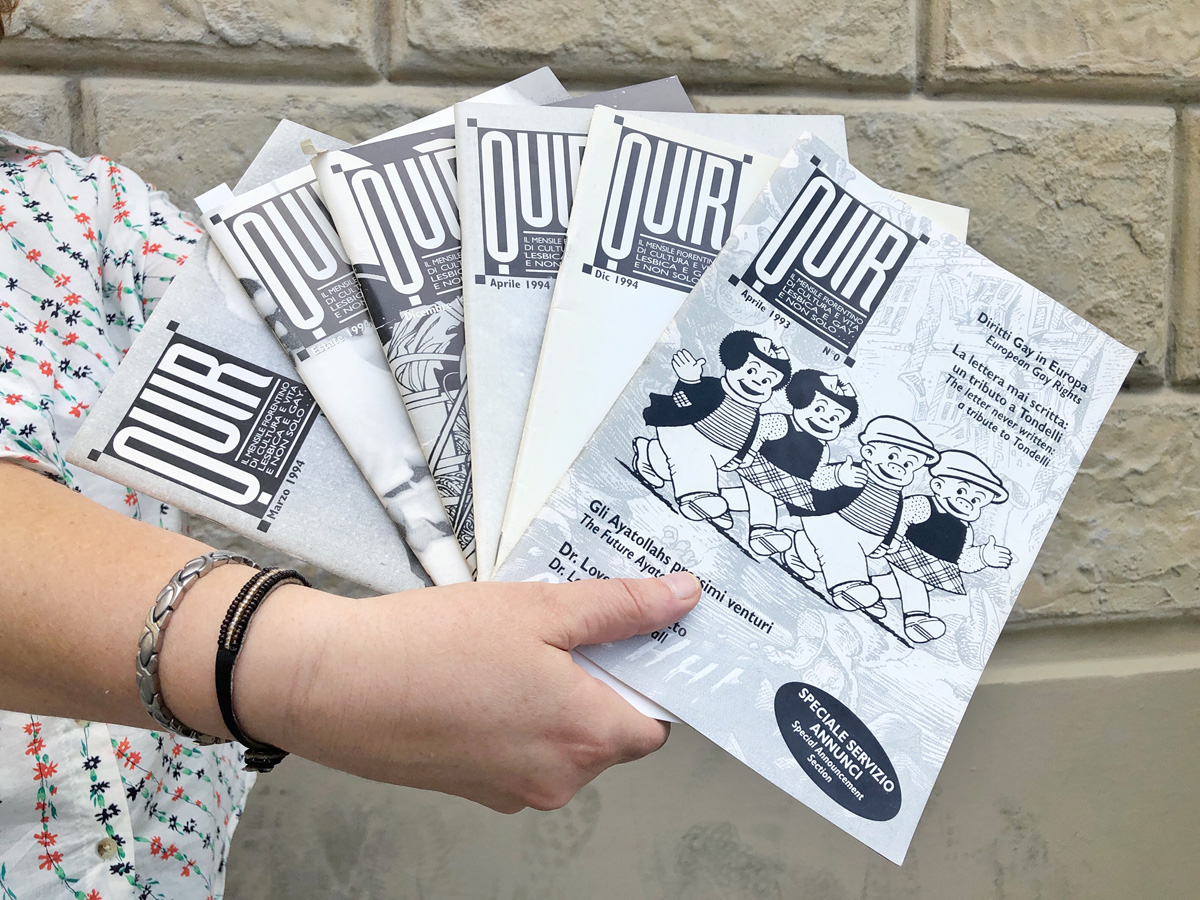
“I’ve considered resuming it as a digital publication, but I don’t think there’s a need for it anymore. I’d like to put it online as an archive and maybe open a forum. I’m interested in gay issues globally, not just in Italy because I’m not sure how much really gets said. I follow transgender, gay and lesbian battles, but there are so many voices. Recently in the States, they didn’t want Jewish dykes at the Dyke March; they banned lesbians from holding Jewish rainbow flags. I wouldn’t want to feel obliged to vocalize that kind of anti-semitism.”
“I was one of the founders of Arcigay Lesbica. In 1989, I was living in Milan and our group of women decided to join Arcigay. In Florence, there was La Mandorla, an established separatist and feminist group. Instead, in Milan, there was a Center for Homosexual Documentation, we were a mixed group and we felt the need to fight together, so we founded what was called Arcigay Donna at the time, which changed to Arcigay Lesbica over the years.”
“I was also the first lesbian to be interviewed coming out on television in Italy. I think it was Italia 1 or one of the Mediaset channels that did six episodes. They interviewed four gay men and two lesbians, me and this other girl. But they cut my episode out because it was so boring. They wanted tragedies, depression and suicide stories. They asked me what my parents thought and I was like, they’re cool, they’re fine. I just get up in the morning and I go to work.”
“I came to Florence in 1991. The World AIDS Convention was held here, so we were doing a lot of activism. It was actually quite dynamic because of the local Florentine Arcigay group. We were having parties at the Flog, which continues as a residue of what we were doing. That’s queer; you get people my age, you get young people, gays, lesbians, straight couples, friends just having a good time. I love those parties because it’s what it should be. Back then there were a lot of pop-up clubs. We had Insomnia in Ponsacco, then there was Torre del Lago with Mamamia and Boca Chica. They were our Saturday nights, we’d drive there and back at seven in the morning, bleary eyed. The more you’re oppressed, the more you become a group. We’re more dispersed now, which is good. We’re normal people; we’re more focused on our own interests now.”
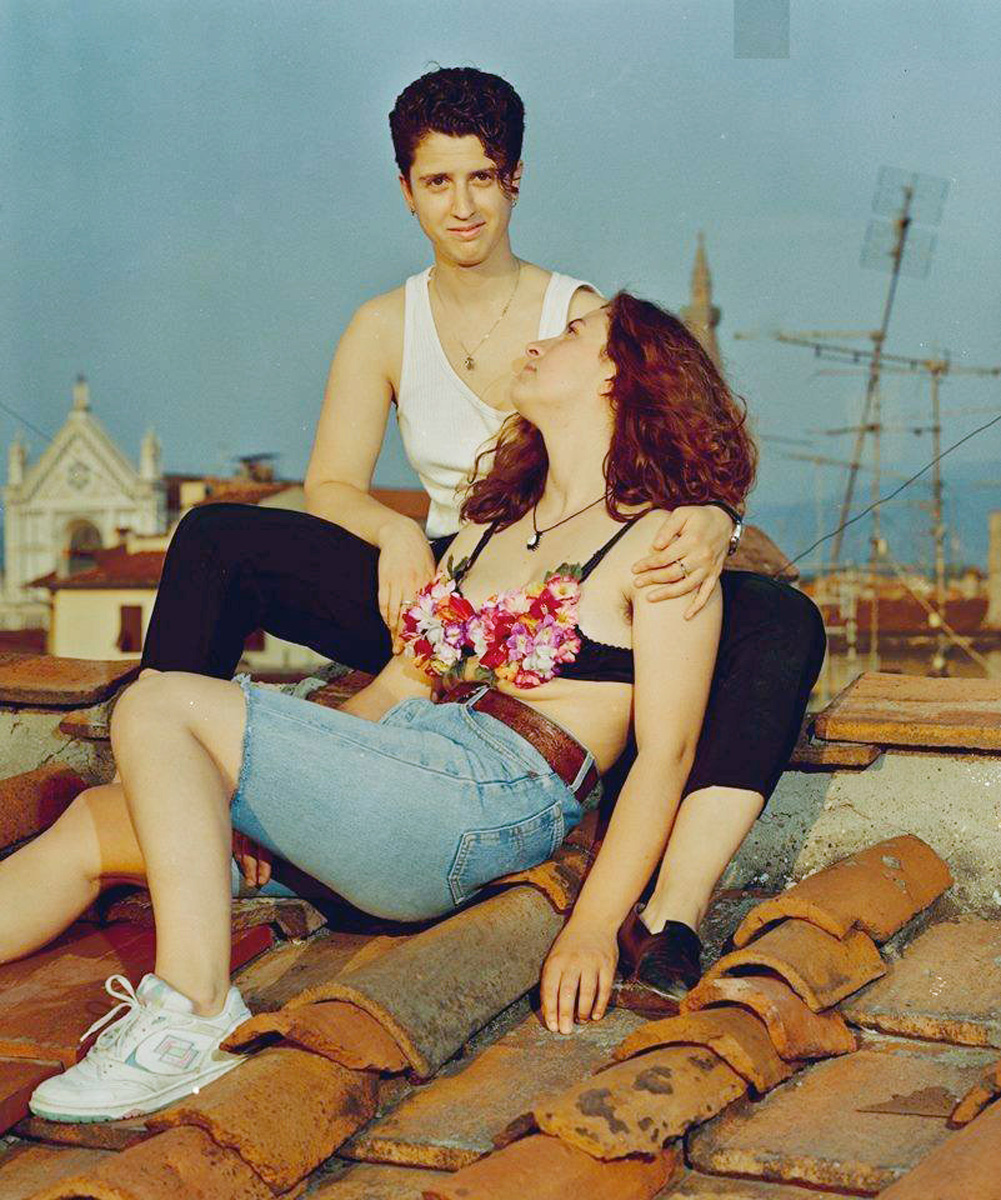
“I can’t put into words the anger and profound sadness I felt when I transcribed my marriage—we got married, actually married, in the UK—here in Florence and I had to check the “civil union” box instead of marriage. Heterosexual couples didn’t have to do that. It’s insulting and discriminatory. Sure, we now have many protections, but we’re still not treated equally.”
“You didn’t come out as readily as you do nowadays. You had to be careful with every new person you met—friends and colleagues. You actually never stop coming out, but nowadays it’s easier. Perhaps it’s just that I’m older and don’t care as much.”
“Being gay is actually considered an asset for my current job. They want as diverse a staff as possible. I did my usual resume, work stuff and basically I was told, “Why didn’t you put you were founder of this magazine? Why didn’t you put that you worked with Arcigay? All your volunteer stuff? We want to know about that!” I just never thought that it would actually be something I would ever put on my resume. I’m a very private person. I’m not closeted, but I don’t go around going, “Woo-hoo, I’m gay!” My organizational skills, my editorial skills, community engagement: all my diversities came out: I’m Jewish; I’m gay. It’s almost a privilege. I have to say it was very awkward, but amusing at the same time.”

